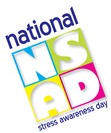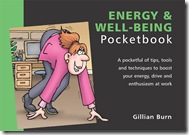Pocketblog has gone back to basics This is part of an extended course in management.
As a manager, you have two stress management responsibilities:
- To manage your own stress levels
- To manage the environment to avoid subjecting your team members to inappropriate levels of stress
Let’s scamper through the basics.
Exercise 1: How to spot the signs of stress in your team?
Make a list for yourself of all of the outward signs that suggest that a team member may be experiencing stress. These are the things you could observe in their demeanour, appearance and behaviour.
Part of your responsibility is to monitor your team’s collective performance. What if stress were an endemic problem? What would be the indicators and behaviours that would signal this problem? Note these down.
For some examples, click here.
Reducing Stress
To understand stress, you need to focus on one thing: control. We feel stressed when we do not feel we have enough control in our lives. Therefore, to reduce stress, we must increase control.
Supporting your team
Look for places where stressed team members feel robbed of control. Where you can, restore some of their control. Where that is not possible, help them to find other areas where they can take control.
Points of Control
The five key points of control for all of us are:
- Our environment
How can you or your team members make changes to the environment to feel a greater sense of control. Often, very little things are enough. Personalisation is an important driver. - Our use of time
Where can you use your time more effectively (you may want to look at the time management tips in an earlier blog)? How can you give team members more control over the way they use their time to get their work done. Autonomy is another important driver. - Our physical response to stressors
Simple choices like what to eat, getting enough exercise and prioritising rest and relaxation will make a big difference to stress levels. Poor physical health will reduce our resilience to a stress response. - Our mental response to stressors
’there is nothing either good or bad, but thinking makes it so’
Hamlet was spot on when he understood that it is the meaning we attach to events that determines our response to them: elation, contentment, boredom, or stress for example. When feeling stressed, take control of your mental response and start focusing on what opportunities there are, what resources you have, and what there is to be grateful for. - Our values – what is important to us
A mismatch between what we are told is important at work and what we fundamentally believe is important to ourselves is a major cause of stress. Examine your values – they may be out of date and you may want to shift, for example from: ‘it is important I work hard’ to ‘it is important I do great work’. If your values are still out of sync with what your employer requires, you are in the wrong job.

- The Stress Pocketbook
- The Energy & Well-being Pocketbook
- Read about The Stress Cycle in an earlier Pocketblog.







 Tomorrow, Wednesday 3 November, is the 12th Annual National Stress Awareness Day. Organised by the Institute of Stress Management (ISMA) their website (
Tomorrow, Wednesday 3 November, is the 12th Annual National Stress Awareness Day. Organised by the Institute of Stress Management (ISMA) their website (

 .
.